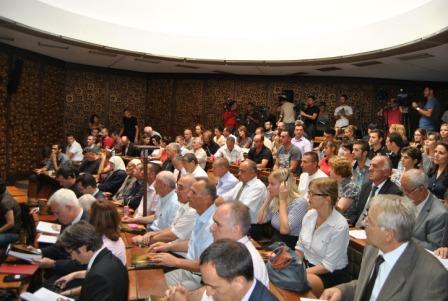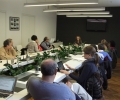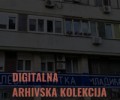In Pristina promoted The Kosovo Memory Book

Humanitarian Law Center and Humanitarian Law Center Kosovo organized promotion of Kosovo Memory Book, 1998 that is composed by 2.046 narratives of killed, fallen and missing persons during the war in Kosovo in 1998. According to Natasa Kandic from humanitarian Law Center this book is very important because it describes the context of how thousands of people were killed in Kosovo. “For the first time in the history of Balkans we have a book that tells stories of victims and will serve for the future generations to refer to this book while they speak about that what happened in the past” and added that “this book does not intend to equalize victims but to show the societies in Serbia and Kosovo what happened during this period”. Bekim Blakaj from Humanitarian Law Center Kosovo spoke about the engagement of tens of person in collecting data and that more than 8.400 interviews are done with victim’s family members.
Ingrid Johansson from Swedish Embassy in Pristina said that this is not an ordinary publication. “Each and every victim in this book tells us the story”. Giving the reasons why the Swedish Government has continuously supported this project she said: “We realize that factual facts help the reconciliation process. Such a process cannot be imposed by the international community; rather it must come within the society. For society to prosper and move on it must deal with its past” said in the end Johansson.
University Professor Mentor Agani said that this is fact finding book and added: “The word people are not used very often. This book speaks about individuals, from the first page until the last one, trying to give answers to the question that every historian must raise to him-self”. On the other hand, Halil Matoshi well known journalist speaking about the importance of this book said: “It is important for a society not to forget what happened because that helps to forgive and that this book will not be used only by members of victim’s families, governmental institutions, international organizations but also from historian that must shed light upon the past” adding that “this book is a defence weapon against repeating the history”.
In the end of the promotion, Xhelil Ajvazi member of victim’s family called upon the institutions to cooperate more with them in order that truth to be more and more known.







